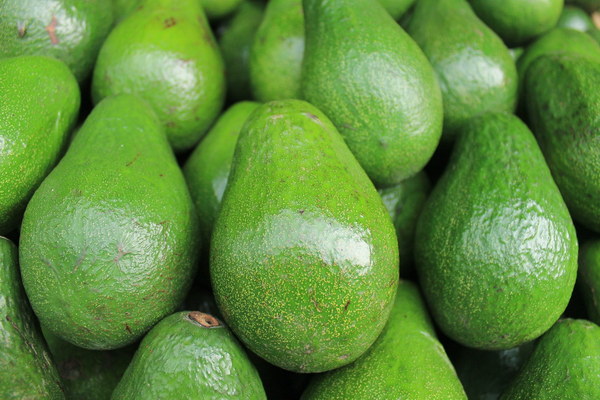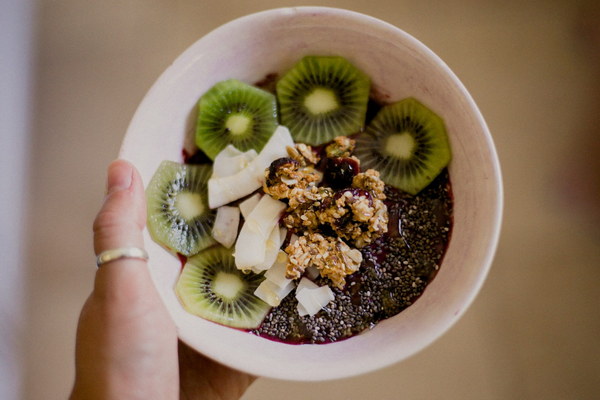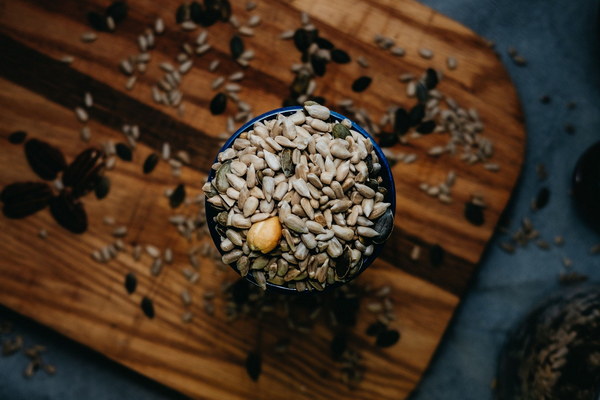Revitalize Your Heart Discover the Benefits of Slow Heartbeat Diet
Introduction:
In today's fast-paced world, maintaining a healthy heart is more crucial than ever. While various factors can contribute to a healthy heart, one often overlooked aspect is the rhythm of your heartbeat. A slower heartbeat can be a sign of a healthier heart. This article explores the concept of a slow heartbeat diet and how it can help you revitalize your heart.
1. Understanding the Slow Heartbeat Diet
The slow heartbeat diet focuses on foods and lifestyle choices that promote a slower, more relaxed heartbeat. This diet emphasizes the intake of heart-healthy foods and the reduction of stress, which can lead to a healthier heart and improved overall well-being.
2. Benefits of a Slow Heartbeat Diet

2.1 Reduced Risk of Heart Diseases
A slower heartbeat can reduce the risk of heart diseases such as coronary artery disease, hypertension, and heart failure. By adopting a slow heartbeat diet, you can lower your chances of developing these conditions.
2.2 Improved Cardiovascular Health
A slower heartbeat indicates a more efficient heart. The slow heartbeat diet encourages the consumption of foods rich in antioxidants, fiber, and omega-3 fatty acids, which can help improve cardiovascular health.
2.3 Enhanced Mental Health
A slower heartbeat can also have a positive impact on your mental health. By reducing stress levels, the slow heartbeat diet can help alleviate symptoms of anxiety and depression.
3. Foods to Include in a Slow Heartbeat Diet
3.1 Fruits and Vegetables
Incorporate a variety of fruits and vegetables into your diet. These foods are rich in vitamins, minerals, and antioxidants that can help improve heart health. Examples include berries, leafy greens, and cruciferous vegetables.
3.2 Whole Grains
Whole grains such as oatmeal, brown rice, and quinoa are excellent sources of fiber and can help lower cholesterol levels. By replacing refined grains with whole grains, you can support a slower heartbeat.
3.3 Fish
Fatty fish like salmon, mackerel, and sardines are high in omega-3 fatty acids, which have been shown to improve heart health and reduce the risk of heart diseases.
3.4 Nuts and Seeds
Nuts and seeds, such as almonds, walnuts, flaxseeds, and chia seeds, are rich in healthy fats, protein, and fiber. They can help lower cholesterol levels and support a slower heartbeat.
3.5 Herbs and Spices
Herbs and spices like turmeric, garlic, and cinnamon have heart-healthy properties. They can help reduce inflammation, lower blood pressure, and improve overall heart health.
4. Lifestyle Tips for a Slow Heartbeat Diet
4.1 Regular Exercise
Engaging in regular physical activity can help improve heart health and maintain a slower heartbeat. Aim for at least 150 minutes of moderate-intensity aerobic exercise or 75 minutes of vigorous-intensity aerobic exercise each week.
4.2 Stress Management
Stress can lead to an increased heart rate. To support a slower heartbeat, practice stress-reducing techniques such as meditation, deep breathing exercises, and yoga.
4.3 Adequate Sleep
Adequate sleep is essential for heart health. Aim for 7-9 hours of quality sleep each night to help maintain a slower heartbeat.
Conclusion:
Embracing a slow heartbeat diet can significantly improve your heart health and overall well-being. By incorporating heart-healthy foods and adopting a balanced lifestyle, you can revitalize your heart and enjoy a healthier life. Remember, the key to a slow heartbeat diet lies in making sustainable changes that you can maintain in the long run.









